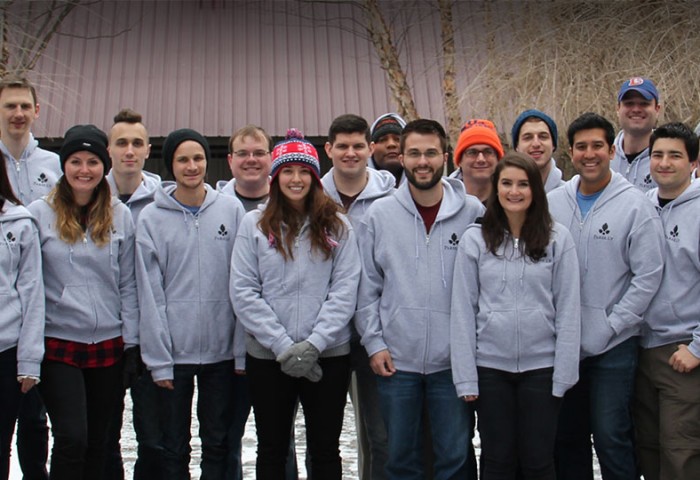We chatted with customer support software company Help Scout about how they work, their team and advice for being successful as a distributed organization.
How many employees and contractors do you have?
40 – 50
What’s the importance of location independence at your company?
Finding talented people should not be obstructed by proximity. By being remote, we can build a company without borders, and in turn, improve the quality and diversity of our team.
Did you start with the intention of having a distributed or nomadic team? If not, when did you decide to support people working remotely?
We did start with the intention of having a remote team, but the very first hires were all in Boston. I’m the second earliest remaining hire, and I was the first remote worker at Help Scout. So we started our remote culture very early.
What are some of the challenges you face as a team without a central location or office?
We do have our Boston HQ, but as a mostly remote team, we face the usual challenges:
- You gain personal productivity as a remote worker, but at the expense of collaboration; it’s the universal trade-off. It’s harder to get micro-feedback (i.e., a shoulder tap), and it’s harder to work in tandem. You will miss the physical whiteboard from time-to-time.
- Staying connected as a remote worker is a challenge. We’ve made a lot of progress here thanks to our practice of Friday Fika. Many remote companies have told us their own version of fika has been extremely valuable for feeling connected to the team.
What’s the upside that comes with not having a central location or office?
There are many, which is why we love remote work, but to keep it short, I’d pick the following:
- Perhaps the best part about remote work is the opportunity it allows. The people you work with impact more than your career; as if those countless hours spent with them won’t rub off on you. If you see a team/company heading where you want to go, remote work gives you a chance to tag along, no matter where you are. I’m thankful for that.
- The focus and output to be had when you mostly manage your own time is staggering. You will be much more productive as a remote worker if you’re disciplined enough to work at home — and not everyone is.
Are there important non-office workspaces in the history of building your company—a favorite coffee shop, bar or similar space?
Our Boston HQ. Nine people work there today.
What % of your company regularly works remotely?
This changes too often for me to answer! Go to: https://www.helpscout.net/about/ and see for yourself. Anyone not in Boston is a remote worker.
Any advice or best practices for supporting the work styles of your teammates from a distance?
Set guidelines for communication, encourage constant sharing of what you’re working on, and put practices like Friday Fika on the calendar — otherwise, they won’t happen on their own.
What types of places do your teammates choose to work from when remote?
Spain, Argentina, Canada, France, Australia, England, Czech Republic. And the most exotic location of all: Delaware.
What qualities do you look for when hiring for a distributed team?
- Talented at managing expectations and their own time
- Exceptional writer, with the ability to grasp complex ideas and explain them in plain language
- Works well with a lot of freedom and does their best work in a culture that has a maximum of three meetings per week
To learn more about Help Scout, their product and their remote team and career opportunities, check out helpscout.net.





Responses